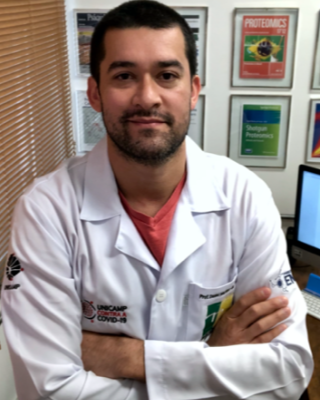It is among the best courses in Biological Sciences in the country. Maximum grade in Enade and 5-star courses by the Quero Educação Guide
Our graduate programs have professors who are nationally and internationally recognized in their areas of research, and offer masters, doctoral and professional master's courses.
With research published in the best periodics, our researchers have effectively collaborated with the development of the biological sciences.
Discover our extension courses and services offered by our laboratories and researchers.
Agenda IB

Daniel Martins de Souza
Expertise in mass spectrometry-based proteomics (shotgun proteomics) and systems biology in silico, employed to clinical and pre-clinical models for psychiatric disorders.

Luciana Bolsoni Lourenço
We are interested in associating cytogenetic and genomic analyses with phylogenetic and phylogeographic inferences to study karyotype evolution in frogs.

Eneida de Paula
Biochemical pharmacology and pharmaceutical technology: 1) Development and characterization of drug-delivery systems in carriers such as cyclodextrins, liposomes, Nanostructured lipid carriers; 2) Biochemistry and Biophysics applied to the study of amphiphile interaction with biomimetic systems.